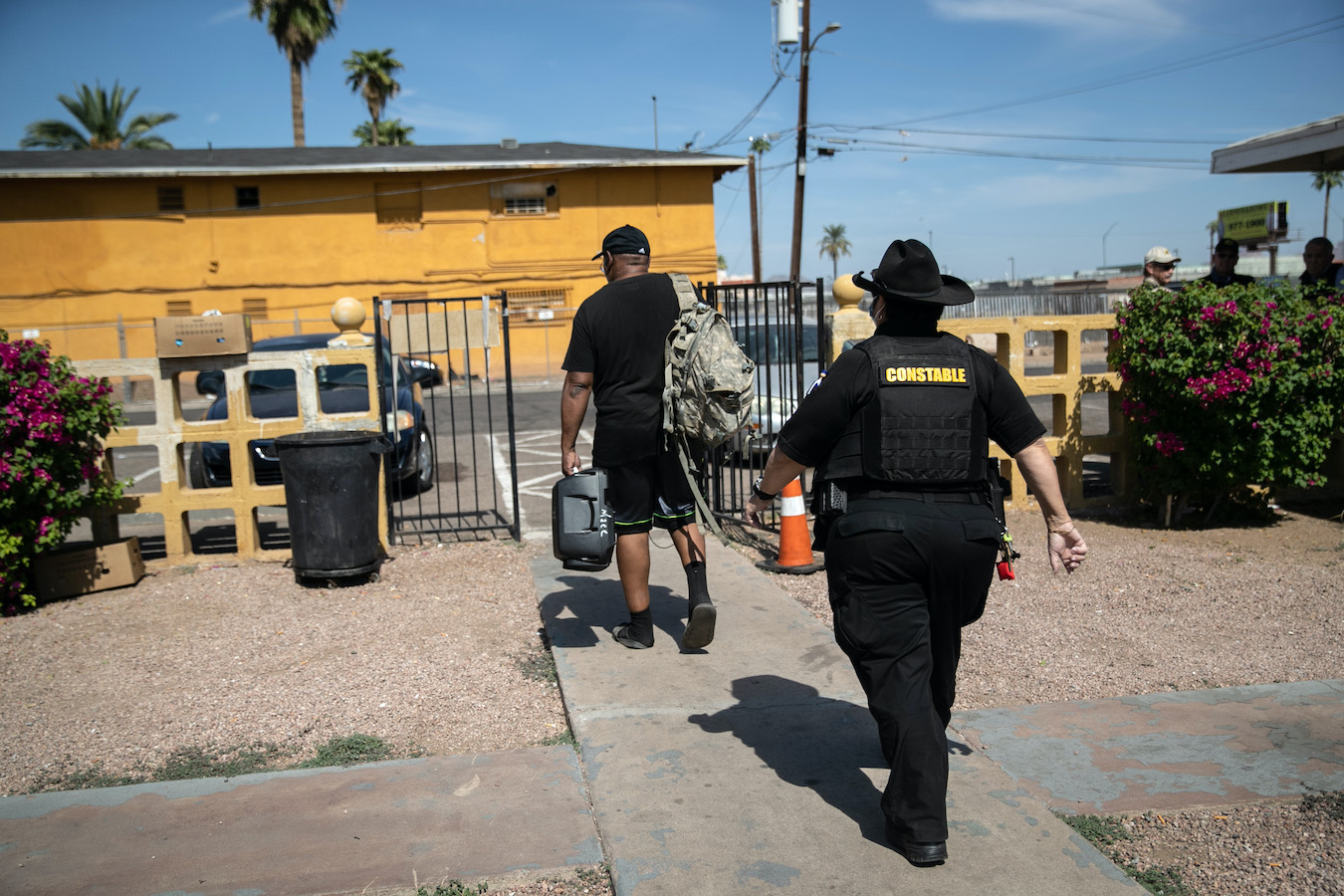You are here
ANALYSIS: Black and Hispanic Americans Suffer Most in Biggest US Decline in Life Expectancy Since WWII
Primary tabs
 Black and Hispanic Americans Suffer Most in Biggest US Decline in Life Expectancy Since WWII The pandemic will undermine Americans’ health for years. Even those not infected by the coronavirus could suffer health problems related to poverty, job loss, eviction — or all of the above.… Kaiser Health News
Black and Hispanic Americans Suffer Most in Biggest US Decline in Life Expectancy Since WWII The pandemic will undermine Americans’ health for years. Even those not infected by the coronavirus could suffer health problems related to poverty, job loss, eviction — or all of the above.… Kaiser Health News ...
Life expectancy across the country plummeted by nearly two years from 2018 to 2020, the largest decline since 1943, when American troops were dying in World War II, according to the study. But while white Americans lost 1.36 years, Black Americans lost 3.25 years and Hispanic Americans lost 3.88 years. Given that life expectancy typically varies only by a month or two from year to year, losses of this magnitude are “pretty catastrophic,” said Dr. Steven Woolf, a professor at Virginia Commonwealth University and lead author of the study.
Over the two years included in the study, the average loss of life expectancy in the U.S. was nearly nine times greater than the average in 16 other developed nations, whose residents can now expect to live 4.7 years longer than Americans. Compared with their peers in other countries, Americans died not only in greater numbers but at younger ages during this period.
The U.S. mortality rate spiked by nearly 23% in 2020, when there were roughly 522,000 more deaths than expected. Not all of these deaths were directly attributable to covid-19. Fatal heart attacks and strokes both increased in 2020, at least partly fueled by delayed treatment or lack of access to medical care, Woolf said. More than 40% of Americans put off treatment during the early months of the pandemic, when hospitals were stretched thin and going into a medical facility seemed risky. Without prompt medical attention, heart attacks can cause congestive heart failure; delaying treatment of strokes raises the risk of long-term disability.
Much of the devastating public health impact during the pandemic can be chalked up to economic disparity. Although stock prices have recovered from last year’s decline — and have recently hit all-time highs — many people are still suffering financially, especially Black and Hispanic Americans. In a February report, economic analysts at McKinsey & Co. predicted that, on average, Black and Hispanic workers won’t recover their pre-pandemic employment and salaries until 2024. The lowest-paid workers and those with less than a high school education may not recover even by then.
And while federal and state relief programs have cushioned the impact of pandemic job losses, 11.3% of Americans today live in poverty — compared with 10.7% in January 2020. A federal eviction moratorium, which has helped an estimated 2.2 million people remain in their homes, expires June 30. Without protection from evictions, “millions of Americans could fall off the cliff,” said Vangela Wade, president and CEO of the Mississippi Center for Justice, a nonprofit advocacy group.
Being evicted erodes a person’s health in multiple ways. “Poverty causes a lot of cancer and chronic disease, and this pandemic has caused a lot more poverty,” said Dr. Otis Brawley, a professor at Johns Hopkins University who studies health disparities. “The effect of this pandemic on chronic diseases, such as cardiovascular disease and diabetes, will be measured decades from now.”
Nineteen million adults recently have had trouble putting food on the table. The inability to afford healthy food — which is usually more expensive than salty, starchy fare — can cause both short-term and long-term harm. People with low incomes, for example, are more likely to be hospitalized for low blood sugar toward the end of the month, when they run out of money for food. ...



Recent Comments